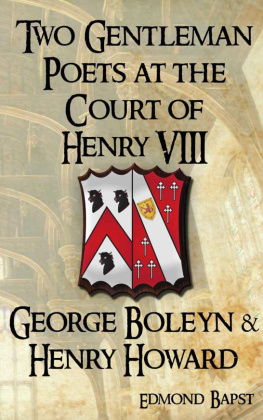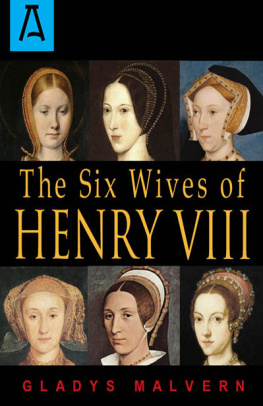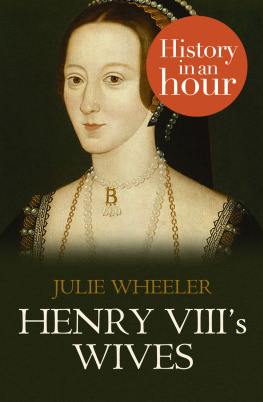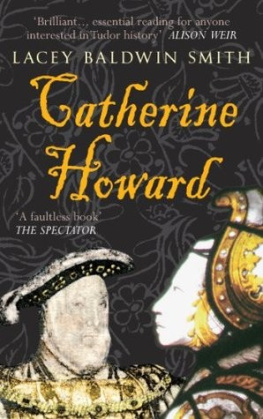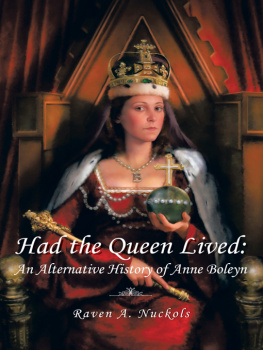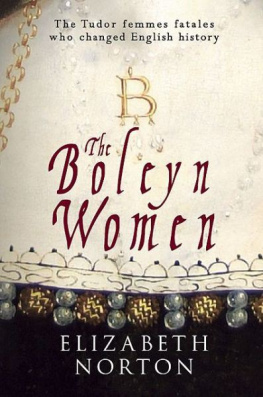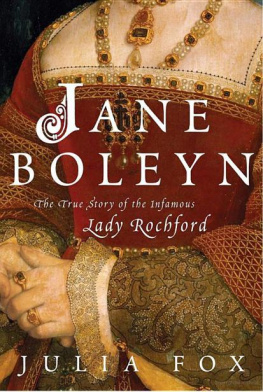Two Gentleman Poets at the Court of Henry VIII: George Boleyn & Henry Howard
By
Edmond Bapst
Embassy Secretary
Translated by J.A. Macfarlane and Claire Ridgway
Edited by Claire Ridgway
Originally published in French by
Librairie Plon
Paris 1891
Two Gentleman Poets at the Court of Henry VIII: George Boleyn & Henry Howard
Copyright 2013
MadeGlobal Publishing
Kindle Version
All rights reserved. No part of this publication may be reproduced, stored in a retrieval system, or transmitted, in any form or by any means, electronic, mechanical, photocopying, recording or otherwise, except as permitted by the UK Copyright, Designs and Patents Act 1988, without the prior permission of the publisher.
M
MadeGlobal Publishing
For more information on
MadeGlobal Publishing, visit our website:
www.madeglobal.com
Cover Image: The background image is of the stunning ceiling of the Great Hall, Hampton Court Palace. Photo 2012 Timothy Ridgway. The crest design is based on the Boleyn (left) and Howard (right) coats of arms and has been drawn in a style similar to a wall display currently in Hever Castle, Kent. All artwork drawn, designed and copyright Timothy Ridgway.
Foreword by Claire Ridgway 2013
"LONDON! hast thou accused me
Of breach of laws? the root of strife!
Within whose breast did boil to see,
So fervent hot, thy dissolute life;"
From A Satire Against the Citizens of London by Henry Howard, Earl of Surrey.
I first came across Edmond Bapst's biography of cousins George Boleyn, Lord Rochford, and Henry Howard, Earl of Surrey, in 2010 while researching the Boleyn family. Although it was published in 1891, and was in French, it was an invaluable resource for me because it was the only biography of George available and Bapst made full use of primary sources, including those held in the archives of the Bibliothque Nationale de France. It was enlightening to read the French side of things, the way the French ambassadors viewed George, both as a diplomat and as a person. Although I don't agree with some of Bapst's views on the Boleyns, his book is meticulously researched.
Henry Howard, Earl of Surrey, is remembered as a Tudor poet with a rather rebellious side and his service as a soldier is often forgotten. As for George Boleyn, he is simply remembered as Queen Anne Boleyn's brother, the one who was charged with incest and adultery with the Queen. These men deserve to be remembered for who they really were, so I commissioned this translation of Bapst's book to rectify things. How ironic that these cousins, who were loyal servants of Henry VIII, ended their lives on the scaffold branded as traitors to the Crown.
I have a good knowledge of French, but 19th century French is certainly not my area of expertise. Jonathon Macfarlane, who did the bulk of the translation, is not only bilingual but he is also an expert on 16th to 19th century French, as well as 16th century English. We had many discussions over tricky areas and I hope that we have been as true as possible to the original text and Bapst's meaning. Thank you to my father, Frank Brassington, an ex French teacher, and Clare Cherry for their help with those tricky areas four heads are definitely better than one.
Claire Ridgway
About Edmond Bapst
Edmond Bapst was born Constant Valentin Edmond Bapst to a family of renowned Parisian jewellers on 7th January 1858. He studied law and literature before joining the French Foreign Service and serving in London, Stockholm, Cairo, Vienna, Luxembourg and Saint Petersburg. In 1905, Bapst was appointed Minister Plenipotentiary in Beijing, then Director of Policy and Corporate Affairs at the Quai d'Orsay in 1909. In 1913, he was sent as an envoy to Copenhagen. Bapst was promoted to the rank of French Ambassador in 1918, serving in Japan until his retirement from the service in 1921.
Bapst published Deux Gentilshommes-Potes de la Cour de Henry VIII in 1891 and his other works included studies of history, foreign policy, and the region of Alsace. He died in Paris on 28th October 1934.
The Works of Edmond Bapst
- Les mariages de Jacques V (1889)
- Deux gentilshommes-Potes de la cour de Henry VIII (1891)
- L'empereur Nicolas Ier et la deuxime Rpublique franaise (1889)
- Les origines de la guerre de Crime. La France et la Russie de 1848 1854 (1912)
- La vie humaine de Notre-Seigneur Jsus-Christ (1924)
- Le sige de Metz en 1870, d'aprs les notes laisses par Germain Bapst (1926)
- Un chteau de l'Alsace: Le Reichenberg (1928)
- Les sorcires de Bergheim: Episode de l'histoire d'Alsace (1929)
- A la conqute du trne de Bade (1930)
- Projets de mariage de l'empereur Napolon III (1931)
- Une mre et son fils. La Grande-duchesse Stphanie et Gaspard Hauser (1933)
Contents
Two Gentleman Poets at the Court of Henry VIII
George Boleyn and Henry Howard
It is a fairly widespread opinion on the Continent that the serried ranks of English nobility show few great difficulties at opening welcoming arms to he who has distinguished himself through any meritorious achievement; and, to mention only one special case that is relevant to our current subject, numerous people believe that the British sovereigns are the only ones who, accomplishing Napoleon I's vow.
What is true is that in England, the upper echelons of Society busy themselves or, to be more precise, busied themselves once upon a time with literature to a degree far beyond that reached by analogous elites in other countries?
Let us mention in passing that this taste for literature that was once a defining mark of English High Society is more than praiseworthy, for it never considered that there were occupations that might leave one bereft of one's rank, and its members could participate in all sorts of other occupations. If in the 16 th century one did not see the great lords become Hackney men and the great ladies milliners, as such and such of their descendants do today, one could see a Duke of Norfolk become a merchant broker; and certainly no-one considered him less than he was due to this merchandising.
One of the eras when English gentlemen perhaps gave themselves over most completely to literature was the reign of Henry VIII. Although the nobility was at the time deeply depleted by the great bloodletting of the Wars of the Roses, in only a few years it produced a starry gallery of authors, Lord Berners.
These gentlemen preferred the elegiac tone in their poetry, an easily explicable choice. Living under Henry VIII's tyrannical domination, compelled to deal in all sorts of dissimulations and base acts so as to not arouse the master's suspicions, they chose rather to evade thoughts of servitude and to use their imagination's fictions to give the lie to the misfortune of reality. Perpetually reeling under the blows of the torments that some of them suffered, they spoke only covertly of the miseries paraded before their eyes, choosing rather to take to the Petrarchan manner and create more or less imaginary mistresses whose charms they could sing or unkindnesses deplore.
Among these gentleman-poets, we have chosen the two who shone with the brightest light at Henry VIII's Court, and whose lives can be considered the type emulated by all their peers. The first of these two poets, Lord Rochford, has to our knowledge never been a subject of study; it is therefore not misplaced to tell the tale of what he did. The life of the second, on the other hand, though often told, has never yet been detailed with precision: he has been made into a fantastical hero. It seemed to us useful to establish the facts and to show, with the help of contemporary documents, what the Earl of Surrey truly did.
Isaac d'Israeli, father of the great British Prime Minister Lord Beaconsfield, set down these lines: "Could the life, or what we have of late called the psychological history, of this poetic Earl of Surrey be now written, it would assuredly open a vivid display of fine genius, high passions and romantic enthusiasm. Little is known, save a few public events; but the print of the footsteps shows their dimension.We trace the excellence, while we know but little of the person."
Next page
